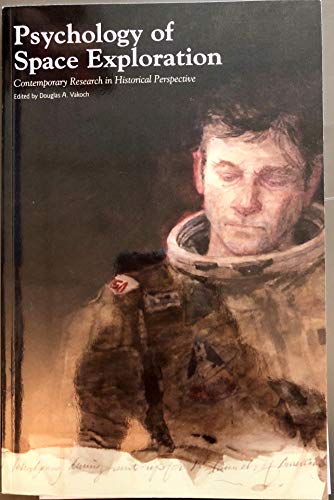Items related to Psychology of Space Exploration: Contemporary Research...
Psychology of Space Exploration: Contemporary Research in Historical Perspective: Contemporary Research in Historical Perspective - Softcover

"synopsis" may belong to another edition of this title.
Psychology of Space Exploration, Edited by Douglas Vakoch, NASA History Series SP-2011- 4411, Government Printing Office (GPO); (Hardcover) $27.00; (Paperback) $23.00; Washington, D.C.; 2011.
You're going to find a rich, motherload of information here regarding a topic that is given little spotlight.
As the book notes, early missions into space were short jaunts, and crews were small, often drawn from a single nation. But as an intensely competitive space race has given way to international cooperation over the decades, the challenges of communicating across cultural boundaries and dealing with interpersonal conflicts have become increasingly important, requiring different coping skills and sensibilities - far different than the "the right stuff" of early astronauts.
Vakoch has done a commendable job here, bringing together a wealth of observations, sectioned in bitable contents that tell the tale: Surviving and Thriving in Extreme Environments; Managing Interpersonal Conflict in Space; and Multicultural Dimensions of Space Exploration.
To say this book is a distinctive, often forgotten aspect of human space travel, is an understatement. As detailed, there is the right stuff of the early astronauts. But moving outward, hopefully on a routine basis beyond Earth orbit - back to...and beyond the Moon to more distant locales - well, that will invoke psychosocial stresses on expeditionary crews.
These challenges are wonderfully addressed in this book by a number of leading experts in the field.
But as explained in an introductory chapter, repeated references to psychology are one thing, but "understanding and managing human behavior in space is an interdisciplinary effort" - one that draws from architecture and design, engineering, biology, medicine, anthropology, sociology, communications, and organizational studies.
Thanks goes to Vakoch for his dedication to this field, and in bringin
"About this title" may belong to another edition of this title.
- PublisherUS National Aeronautics and Space Admin
- ISBN 10 0160886082
- ISBN 13 9780160886089
- BindingPaperback
- Rating
Buy New
Learn more about this copy
Shipping:
£ 3.89
Within U.S.A.
Top Search Results from the AbeBooks Marketplace
Psychology of Space Exploration: Contemporary Research in Historical Perspective: Contemporary Research in Historical Perspective
Book Description Condition: New. Seller Inventory # QG-39GH-PCAA

